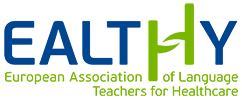Welcome to the first in a series of occasional posts giving essential Medical English tips. This one focuses on a critical area of practice: giving advice sensitively. Get this right, and your rapport with your patient will be a powerful factor in building a successful therapeutic partnership. Get this wrong, and your relationship may never recover. Read on.
Giving Advice Sensitively
There are some occasions, when healthcare professionals have to give advice in a sensitive manner. Think of some of the times, when you have had to do this. What sorts of things were you discussing?
Perhaps:
- - misuse of illegal drugs
- - misuse of legal drugs, e.g. using someone else’s medication, increasing the dose of your own medication
- - excessive alcohol consumption or lack of knowledge about safe levels of alcohol use
- - weight issues, e.g. obesity/overweight, underweight, eating disorders
- - body image issues, e.g. dysmorphia
- - depression or bereavement
- - avoiding STIs, e.g. use of safe sex
Now, think about the language you might use in these situations. It is useful to have a ‘scale’ of language in mind, when you are giving advice sensitively. In order to be effective, you will be using several communication skills. Here are 3 very useful skills:
a. Using non-judgemental language (both verbal and non-verbal)
At times, you may be talking about subjects which you find uncomfortable, so it is important to pay attention to your own body language. Are you using gestures (e.g. crossing your arms in front of your chest) or negative body positions (e.g. leaning back or away from the other person)? Are you using judgemental phrases, e.g.
You’re going to have to make more of an effort. You need to pull yourself together now?
b. Acknowledging the patient's situation
In order to be non-judgemental, it is often a good idea to acknowledge the difficulty the patient may have with their particular health issue, e.g.
I can see you are finding losing weight very challenging.
It looks like you are having a difficult time coming to terms with your mother’s death.
c. Empathising with the patient
It is also a good idea to empathise with the patient, before giving any advice, e.g.
I imagine that it must seem almost impossible to tackle your drug issues.
I guess it must be overwhelming to deal with your weight problem.
Giving Advice
Now, onto the giving of advice in a sensitive manner. You may find you are using phrases such as:
It would be a good idea to..
It would be helpful, if you could…
It would be useful to think about…..
Would you be willing to try….?
As you can see, these phrases are similar to the phrases used to make suggestions. In contrast, when giving advice, you might say:
You should….(reduce your fat intake, exercise more etc)
You need to…(keep an eye on your weekly alcohol intake)
In the case of sensitive advice, these phrases may appear too harsh at first. Of course, in situations where immediate lifestyle changes need to be made, strong advice may need to be given, e.g. evidence of dangerous drug habits or unsafe exposure to infections. In these cases, you may use phrases such as :
You must…
It is essential that you…
It is vital that you….
About the Author
Medical English Tips: Giving Advice Sensitively was written by Virginia Allum, SLC's Head of Medical English.
Virginia wrote SLC’s Medical English courses and is SLC’s lead Medical English consultant. She is a lecturer in English for Medical Purposes, a Medical English teacher trainer, and a widely published writer, including co-authoring the Cambridge English for Nursing text books, used by Medical universities around the world. Virginia is also a practising Registered Nurse, with years of practice in the UK and Australia.






